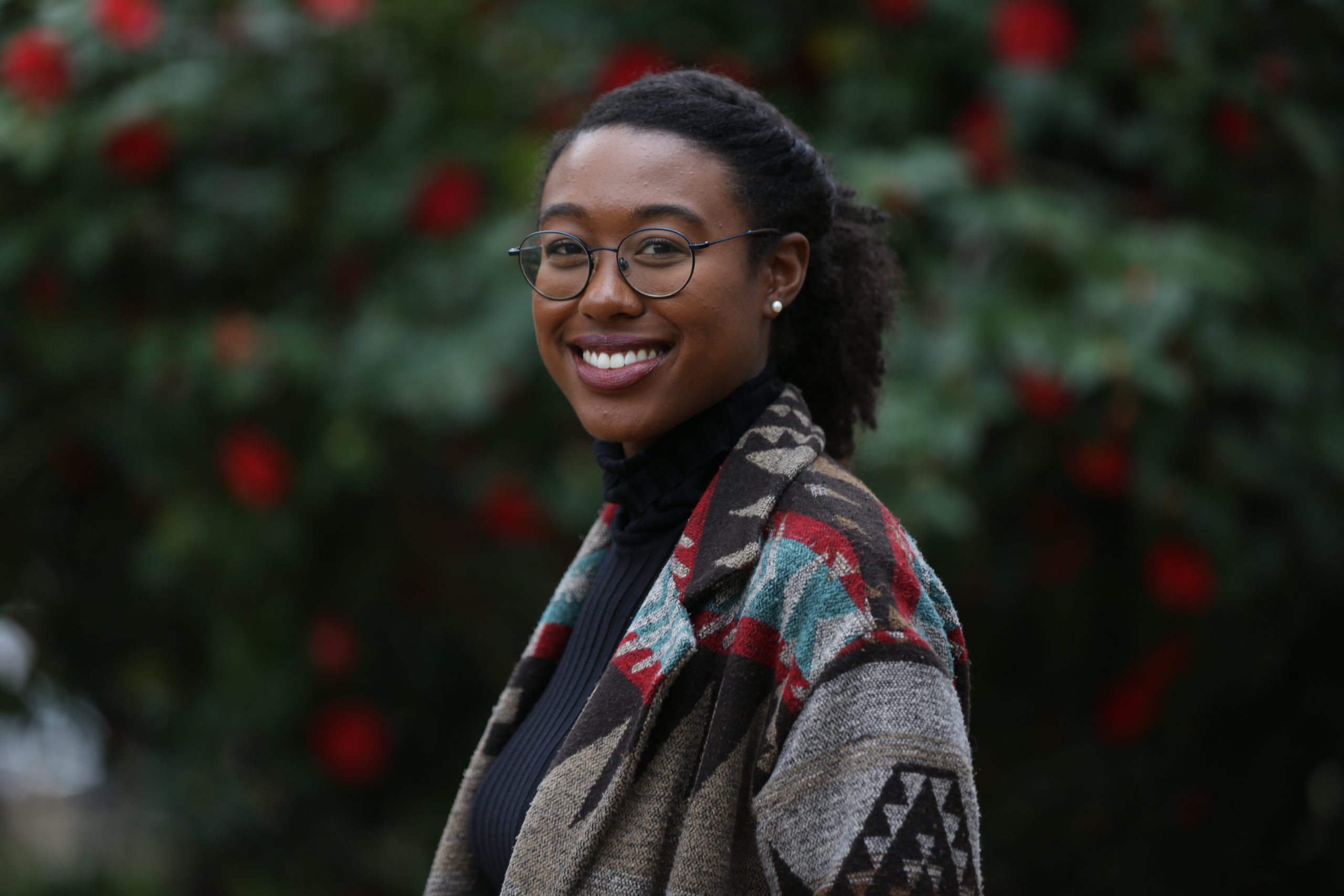*In response to the recent protests against police brutality, XQ is putting together content that highlights how structural racism, the carceral system, and economic inequality play out in our school systems. Here’s a beautiful and powerful essay written by Amari Pollard.
Due to COVID-19, I’ve been staying with my parents in Central New York for the last two and half months. I’ve lived on my own for three years, working for online publications in Syracuse and New York City before entering graduate school at the University of North Carolina, where I’m currently a fellow. This is the longest period of time I’ve stayed at home since college, and being home has triggered a lot of memories. I’ve contemplated the isolation I felt growing up in a majority white town, how often I’d drive home during college to escape the continued racism I experienced on campus, and why I felt compelled to leave the place I grew up. The recent killings of Breonna Taylor, Ahmaud Arbery, George Floyd, Tony McDade, and David McAtee have once again forced me to reflect on what it means to move through this world as a Black person, as a Black woman, and how we have to fight to take up space. For many, standing firm in your truth may not seem all that complicated, but as a Black woman, it is a revolutionary act.
To be a Black woman in the world is to be hyper-visible and invisible at the same time. It is to sit at the front of the class during Black History Month and feel everyone’s eyes bore into your back as if the scars of your ancestors’ past didn’t already permanently reside there. It is to walk into a coffee shop after school to study and watch the barista address someone directly behind you as if you weren’t there waiting in line first.
Growing Up in a World That Didn’t Love Me
Between the secure and loving walls, my parents built for me, I was taught to value my voice, understand my worth, and envision endless possibilities for my future. It was perplexing to then step outside of those walls and meet a world that did not love me in the ways I loved myself. For every moment I felt proud for speaking up in class, there was a teacher to tell me my confidence was unwarranted. For every day I felt beautiful, there was a fellow student to tell me my features were too prominent or my body was too round to be considered pretty. Once I realized certain parts of me would never be considered enough, I learned how to hide them away.
For years I actively trained myself in the art of taking up less space. Instead of standing with my shoulders back and my head high, I arched them forward in an attempt to appear less authoritative and more docile. Instead of speaking clearly, I controlled the emotion in my voice and kept it just above a whisper as to not be “too loud.” Instead of allowing my curls to grow wide, I burnt the kink from my strands with chemicals, hairdryers, and flat irons, so I could feel what it was like to walk with my ponytail swinging from side to side. I became so good at making myself small that I forgot who I was and that there was a time when I loved myself.
I was so worried about people viewing me as a stereotype that I did everything in my power to be the opposite of who they expected me to be. Losing oneself to the false ideas of Black womanhood is a common experience for many of us and it causes a lot of internal turmoil that often takes years—and many therapy sessions—to unpack. It wasn’t until college, where I was truly exposed to African American literature and became involved in multicultural groups on campus, that I began to feel comfortable in my own skin again. I surrounded myself with Black women who pushed me to reflect on and unlearn the anti-Black sentiment I had been taught through social encounters and change the narratives around our existence by pushing systemic change within our college. By the time I graduated and entered the workforce, I had a clear understanding of myself as a Black woman and a new level of determination to move through the world as the person I was, without conforming to Eurocentric values.
Using Education as Liberation
To this day, the source of my internal liberation comes from my continued self-education. My primary education failed to properly teach me America’s history outside Eurocentric narratives, where the victor is to be looked upon with admiration rather than skepticism. It wasn’t until college when professors exposed me to the likes of Nella Larson, Toni Morrison, and Langston Hughes that I truly saw myself reflected back to me in the classroom. Those books reinforced my feelings toward Black stories: that they are powerful, important, and needed in order to examine our world. Suddenly, I started to view my own voice differently and see it as a tool for effective change. I started writing for my college newspaper and worked my way up to the Editor-in-Chief in my junior year; I attended town halls and facilitated debates between U.S. representatives; I organized protests and worked with local news organizations on coverage. In an unfortunate, yet fortunate way, the systems that actively tried to suppress the voices of Black and brown people forced me to find mine. Still, what I needed most throughout my primary and secondary education was to learn from Black and brown teachers, to have educators dedicated to sharing the vast and complex accounts that created this country, and affirm my existence as a Black American.
Here are some tokens of advice I wish I had received as a Black girl growing up and learning how to assert herself in the world:
- Go find the information you so desperately want. I was continuously disappointed by the history lessons taught and the narrow reading lists assigned to me throughout my school career. But instead of asking questions and seeking the literature I knew was out there, I accepted what teachers gave me. To this day, I’m still playing catch up and have a long way to go.
-
- Surround yourself with good friends. Find people that understand your experiences—or are willing to listen to your experiences—and look to uplift your voice instead of suppressing it.
- Wear your hair however you want. In curls, locs, braids, relaxed, or under wigs. Don’t be afraid to switch it up out of fear of ignorant comments, because however you choose to wear your hair is beautiful. The education system has a tendency to put dress codes in place that discriminate against Black hair, but you should be able to wear it proudly, freely.
- Release yourself of the “strong Black woman” stereotype. The notion that Black women must uphold an unshakable disposition puts a lot of pressure on us and can cause us to experience common mental disorders such as anxiety, depression, and obsessive-compulsive disorders. It prevents us from experiencing the full range of human emotions—or at least makes us feel guilty and weak when we do. Allow yourself to feel your emotions as they come, whether it includes sadness, anger, fear, all of them.
- Practice body positivity. Speak words of affirmation while looking at your body in the mirror, focus less on weight and more on your overall wellness, and reclaim your body in terms of sexuality and sex-positivity.
- Advocate for yourself. The act of speaking out in defense of yourself can be scary and intimidating, but too often Black women feel they need to quiet themselves to make others feel comfortable. In doing so, we put ourselves on the backburner. The ability to advocate for yourself comes with the certainty of knowing your worth. Once you fully understand how valuable you are as a human being, speaking up won’t feel so difficult.
Your most formative years are spent at a desk, absorbing as much information as possible so that you are prepared to enter specific spaces as an adult. Now is the time to learn, to observe, but most importantly, to discover how to be your most authentic self. It’s work, but that is where the revolution begins.
TAGS:



 Tweet
Tweet 



